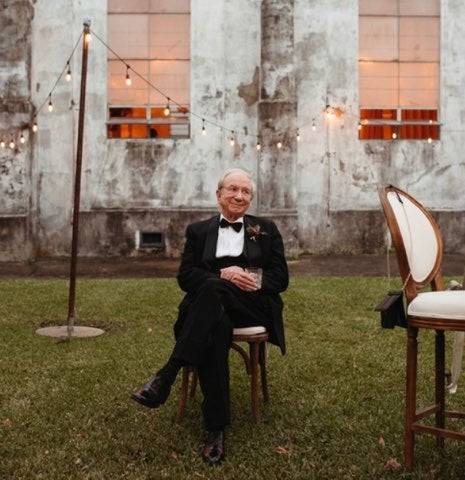Greenville native among those killed in church shooting
Published 10:57 am Tuesday, June 21, 2022
|
Getting your Trinity Audio player ready...
|
Thursday’s church shooting at St. Stephen’s Episcopal Church in Vestavia Hills, a small suburb just outside of Birmingham, has rocked the entire state of Alabama.
The church is located at 3775 Crosshaven Drive, in a quiet, unassuming neighborhood.
The question of, “Can that happen here?” has been answered.
Unfortunately, yes. Alabama is not immune to the fear and confusion of an active shooter situation.
Many of the church leaders in Greenville have confirmed having a plan in place if an active shooter situation occurs. Several of the churches participate in active shooter drills, but all pray they will never have to use the training.
The 911 dispatcher who answered the call for help on Thursday, June, 16 had no way of knowing the horrific events that were unfolding.
Three people were shot.
Walter Bartlett Rainey, 84 of Irondale, was pronounced dead at the scene. Rainey grew up in Greenville, Alabama.
Sarah Yeager of Pelham, age 75, was taken to UAB Hospital in Birmingham. Another female, age 84, was also taken to UAB. Her family wishes to remain anonymous.
Both victims succumbed to their injuries.
The call for help came in at 6:22 p.m.
The police, as well as the fire department, arrived just minutes after. They were soon followed by the FBI, the U.S. Marshals Service and the Bureau of Alcohol, Firearms, Tobacco and Explosives.
These investigators stayed for hours after dark, cordoning off the entire area with yellow police tape.
People came from their homes and vehicles. They huddled and they prayed.
Rev. Kelley Hudlow of St. Stephen’s told reporters on the scene, “We’re gonna need a lot of love.”
The congregation was enjoying a “Bommers Potluck” dinner that started at 5 p.m. in the Parish Hall that night.
Capt. Shane Ware of the Vestavia Hills Police Department told reporters late Thursday, “From what we’ve gathered from the circumstances of this evening, a lone suspect entered a small church group meeting and began shooting.”
The suspect, identified as Robert Findley Smith, an occasional attendee of the church, has been booked in the Jefferson County jail in Birmingham, Alabama. He is facing three counts of capital murder.
A church member reportedly hit the gunman with a chair, disarmed him, and struck Smith in the head with his own gun. Church members held him down until law enforcement arrived.
At this time, there is no clear motive for this shooting.
Alabama Governor Kay Ivey said, “We want to offer our prayers for the victim’s families, the injured and the entire church community. I am glad to hear the shooter is in custody. This should never happen—in a church, in a store, in the city or anywhere.”
This shooting follows fast upon the heels of several shootings to occur throughout the country in just the last month.
According to the website www.gunviolencearchive.org/reports, there have been 44 mass shootings in the United States since June 1 of this year.
The total mass shootings for 2022 is 268 and counting.
Of those shootings, 305 people have been killed.
This brings to the forefront the issue of gun control vs. second amendment rights, which is currently raging not only in this country, but in the state of Alabama as well.
State Representative David Standridge, a Republican from District 34, introduced House Bill 310, or HB310, in February of this year.
The bill reads in part: “This bill would create the Alabama Second Amendment Protection Act to provide that when the President of the United States issues an executive order which limits or restricts the ownership, use, or possession of firearms, firearm accessories, or ammunition by law-abiding residents of the state, or otherwise attempts to limit the Second Amendment rights of the residents of this state in an unlawful manner, the executive order shall be deemed unenforceable by law enforcement officers of this state, and would specify that no law enforcement officer may be ordered, directed, or compelled to execute or administer the executive order.”
HB310 was approved on March 17, 2022 by the House Public Safety and Homeland Security Committee.
But is this legal? Yes, it is.
According to the legal principle known as anti-commandeering doctrine.
This doctrine states that the federal government cannot force a state to enforce any federal laws. There have been five landmark cases in the Supreme Court that have upheld this doctrine.
What this means exactly for people opposed to gun ownership and those in favor of gun ownership is still a hot topic open for debate.
For now, Alabamians wait to see exactly what the future holds for not only our state, but for our nation.






